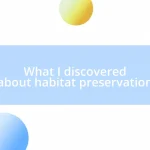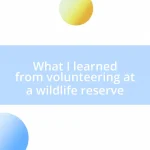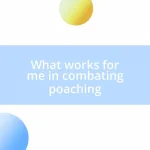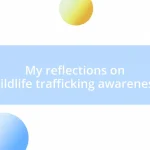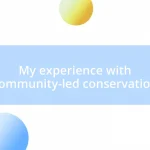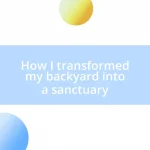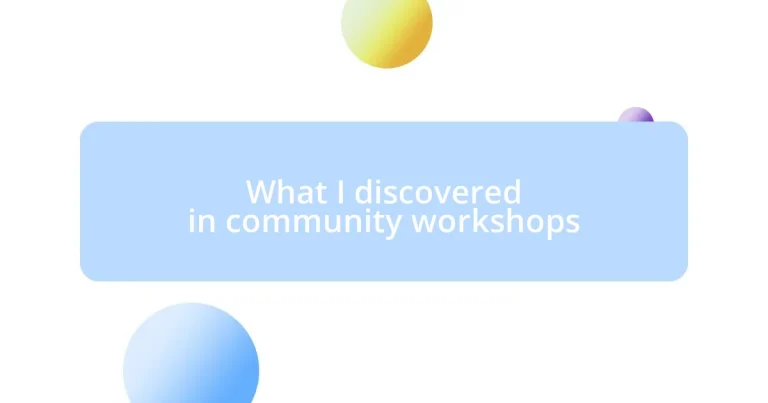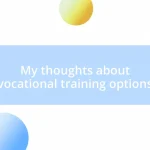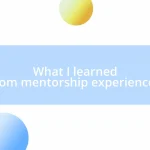Key takeaways:
- Community workshops foster connections and create a sense of belonging among participants.
- Participants not only acquire technical skills but also enhance soft skills like communication and confidence.
- Networking opportunities arise from shared interests, leading to collaborations and lasting relationships.
- Active engagement, asking questions, and reflecting on experiences are vital for maximizing learning in workshops.
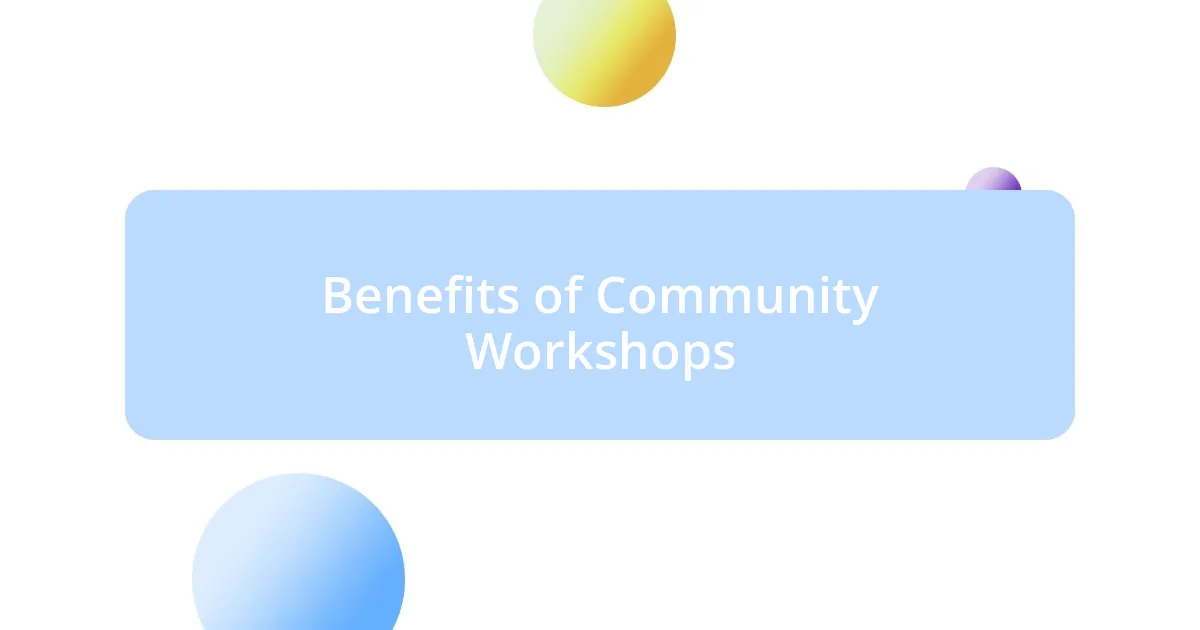
Benefits of Community Workshops
One of the most rewarding aspects of community workshops is the sense of connection they foster. I remember attending a local painting workshop where, amidst laughter and shared stories, strangers became friends. Isn’t it incredible how a simple activity can break down barriers and create a sense of belonging?
Additionally, community workshops serve as powerful learning platforms. At a recent gardening workshop, I discovered not just how to cultivate plants, but also gained insights about sustainability and environmental stewardship that I hadn’t considered before. Have you ever realized how much knowledge is exchanged in such informal settings? It’s eye-opening.
Finally, the empowerment that comes from participating in community workshops is profound. I’ve seen individuals transform after gaining new skills, like public speaking or digital literacy, which they might’ve thought were beyond their reach. Isn’t it amazing how a few hours can spark a newfound confidence in someone? The impact really does extend far beyond the workshop itself.
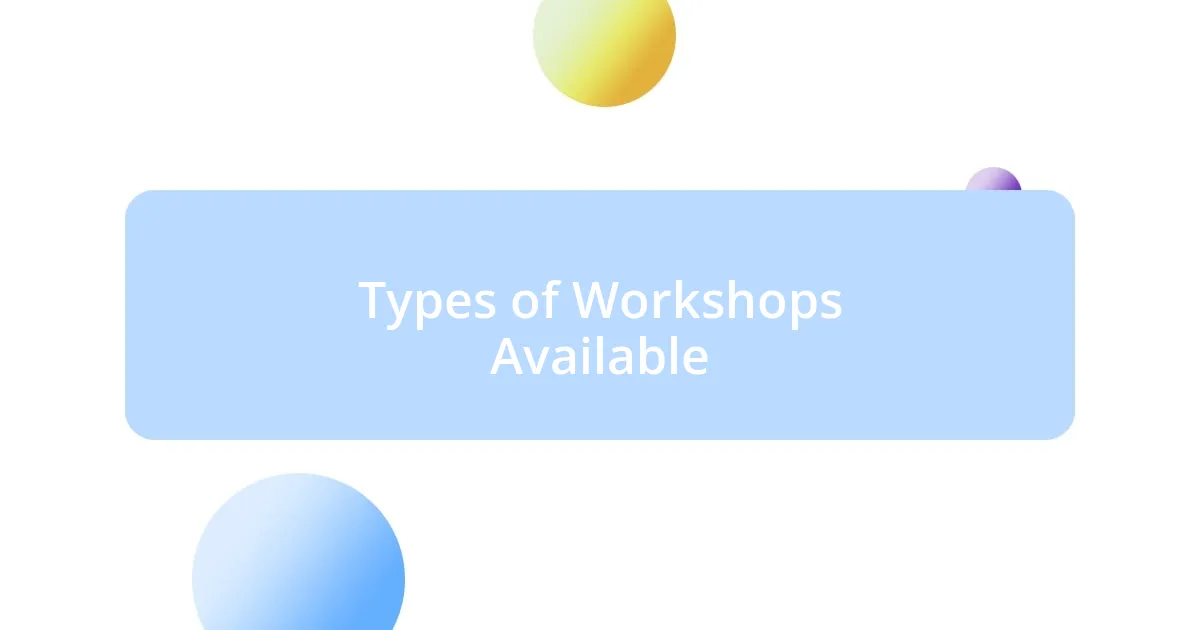
Types of Workshops Available
When I started exploring community workshops, I was surprised by the diversity in what they offered. It’s fascinating how each type caters to different interests and skill levels. For example, I wandered into a storytelling workshop once, completely by chance, and found myself captivated not just by the tales shared, but by the unique techniques we learned to express ourselves. That moment of vulnerability among participants was extremely powerful—people opened up in ways I hadn’t expected.
Here’s a breakdown of some common types of workshops you might encounter:
- Art and Craft Workshops: These include painting, pottery, or DIY crafts, perfect for those wanting to explore their creative side.
- Cooking and Culinary Classes: Engage in hands-on experiences with local chefs, discovering new recipes and techniques.
- Gardening and Sustainability Workshops: Great for those passionate about the environment, focusing on sustainable practices and plant care.
- Technology and Digital Skills Seminars: These help bridge the digital divide, offering insights into everything from basic computer use to social media strategy.
- Health and Wellness Sessions: Covering topics like meditation, fitness, and nutrition, these workshops promote holistic well-being.
- Community Leadership and Development Programs: Designed for those interested in empowering their communities and enhancing leadership skills.
Each workshop not only provides knowledge but also creates a sense of camaraderie among participants. The joy of learning alongside others who share similar interests is something I truly cherish, and it enriches the experience immensely.
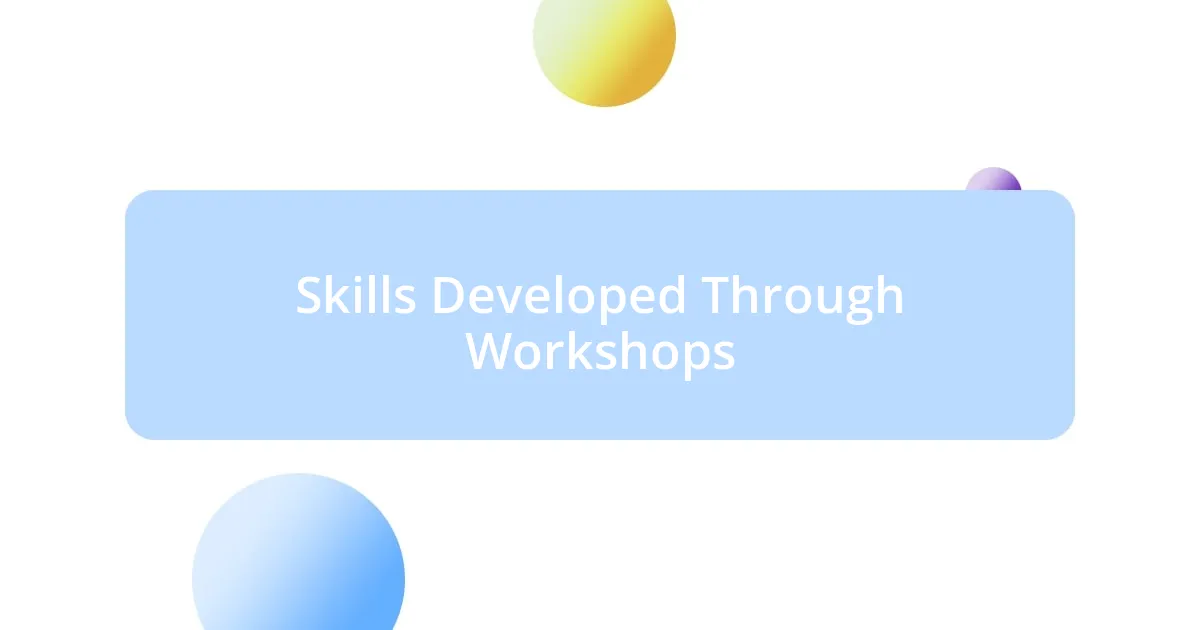
Skills Developed Through Workshops
When I participated in a digital skills workshop, I was amazed to see how quickly people adapted to new technology. There was this older gentleman who had never touched a computer before, but by the end of the session, he was sending emails and browsing the web with confidence. It was a beautiful transformation that highlighted how workshops empower individuals, often in ways they never anticipated.
I also noticed that workshops often nurture soft skills, which are sometimes overlooked. In a recent public speaking workshop, I faced my anxiety head-on. Sharing my story in front of the group was nerve-wracking, but the supportive feedback made me feel truly valued. This experience not only improved my speaking abilities but also bolstered my self-esteem and helped me connect with others on a deeper level.
In my experience, workshops are a fantastic way to develop both hard and soft skills. Whether it’s learning about photography techniques or diving into conflict resolution strategies, each session brings unique gains. It’s remarkable to witness how the right environment can facilitate authentic growth and learning.
| Skill Category | Skills Developed |
|---|---|
| Technical Skills | Digital literacy, Craftsmanship, Cooking techniques |
| Soft Skills | Communication, Teamwork, Confidence |
| Leadership Skills | Public speaking, Project management, Community involvement |
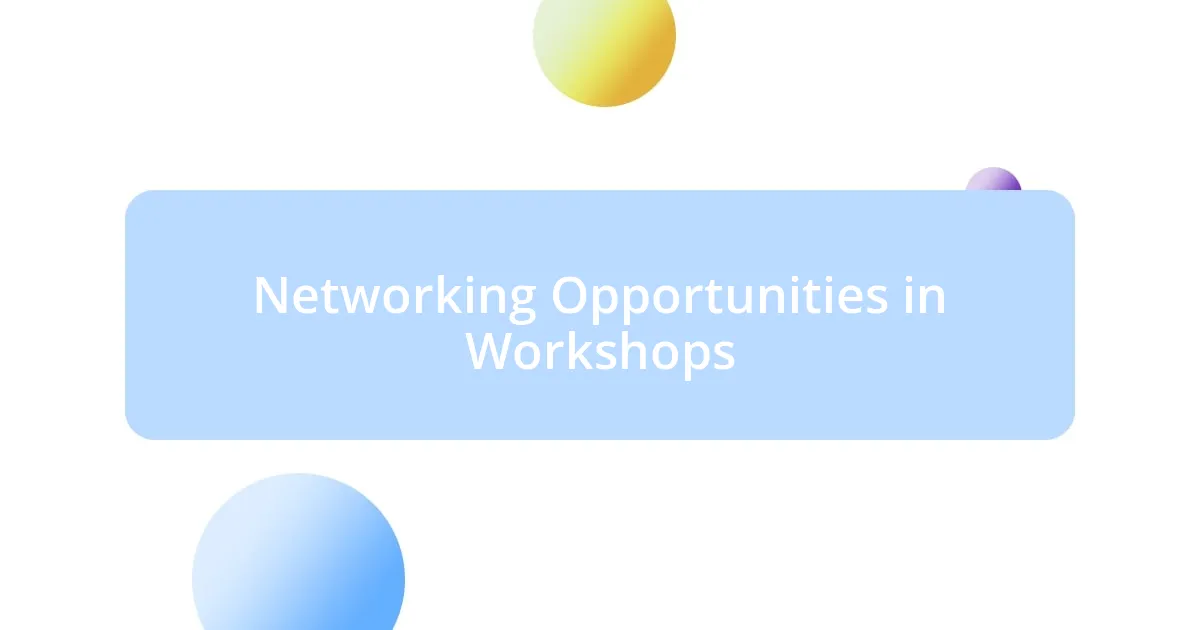
Networking Opportunities in Workshops
Connecting with people in workshops can be one of the most rewarding experiences. I remember attending a yoga workshop where I struck up a conversation with a fellow participant who happened to be a wellness coach. Our chat blossomed into a collaboration, as we decided to co-host a local health event together. This opportunity transformed my understanding of community networking—what a simple workshop can turn into!
Have you ever considered the connections you can make while learning something new? In a personal finance workshop, I met someone who shared valuable insights on budgeting. We not only exchanged tips but also became each other’s accountability partners for our financial goals. Just think about that moment: two individuals, brought together by a shared interest, inspiring each other to take meaningful steps forward. That’s the beauty of networking in workshops.
Another memorable experience was in a creative writing workshop. I encountered a published author who generously shared his journey with us. His advice and encouragement motivated me to take my writing seriously. This interaction assures me that workshops are not just about skill building; they’re about building relationships with those who can inspire and uplift us. Have you thought about who you might meet in your next workshop?
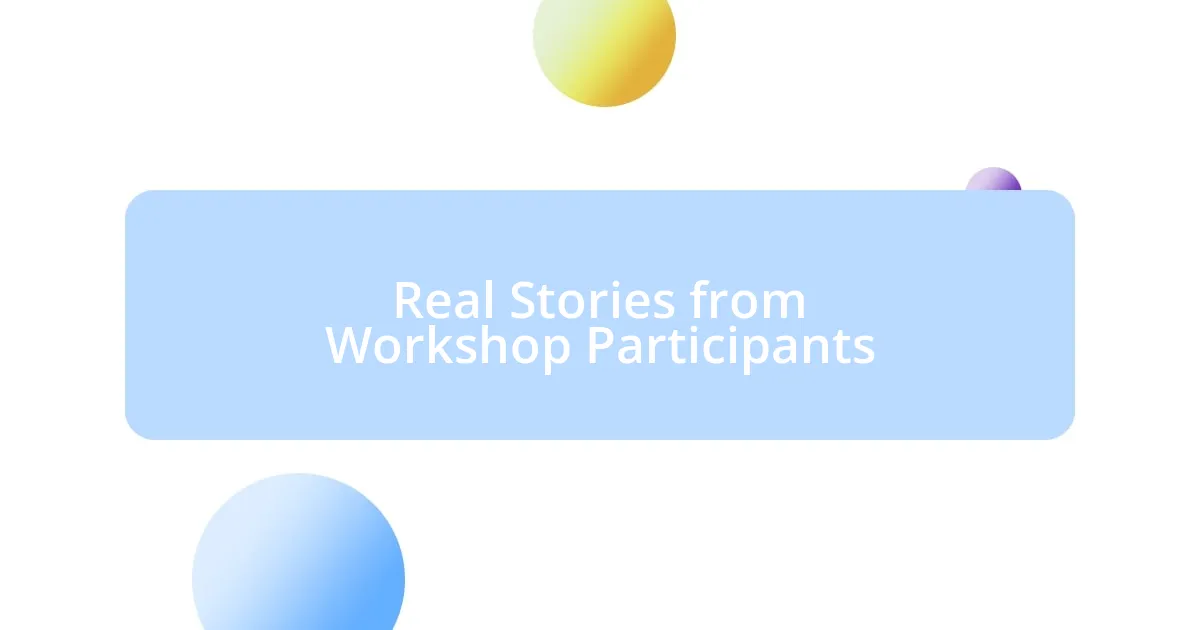
Real Stories from Workshop Participants
In a recent cooking workshop, I met a single mom named Sarah. She arrived a bit shy, sharing that she wanted to improve her culinary skills for her kids. By the end of the session, she was laughing and confidently whipping up her own dishes. I could see the joy radiating from her; it was clear that this experience not only taught her new recipes but also reignited her passion for family meals.
I also recall a photography workshop where a retired teacher named Frank shared his journey. He initially signed up just to learn how to take better pictures of his grandchildren. By the end, he was not only capturing beautiful moments but also inspiring others with his newfound love for photography. It was heartwarming to witness how passion can flourish in unexpected places, transforming not just skills but also self-perception.
Have you ever thought about how a simple conversation can change the course of your life? During a community art workshop, I struck up a chat with a budding artist, Emily. Her passion was contagious, and we ended up collaborating on a mural project in our neighborhood. That experience taught me that sometimes, it’s not just about learning a skill; it’s about the friendships and shared journeys that emerge, creating something beautiful together.
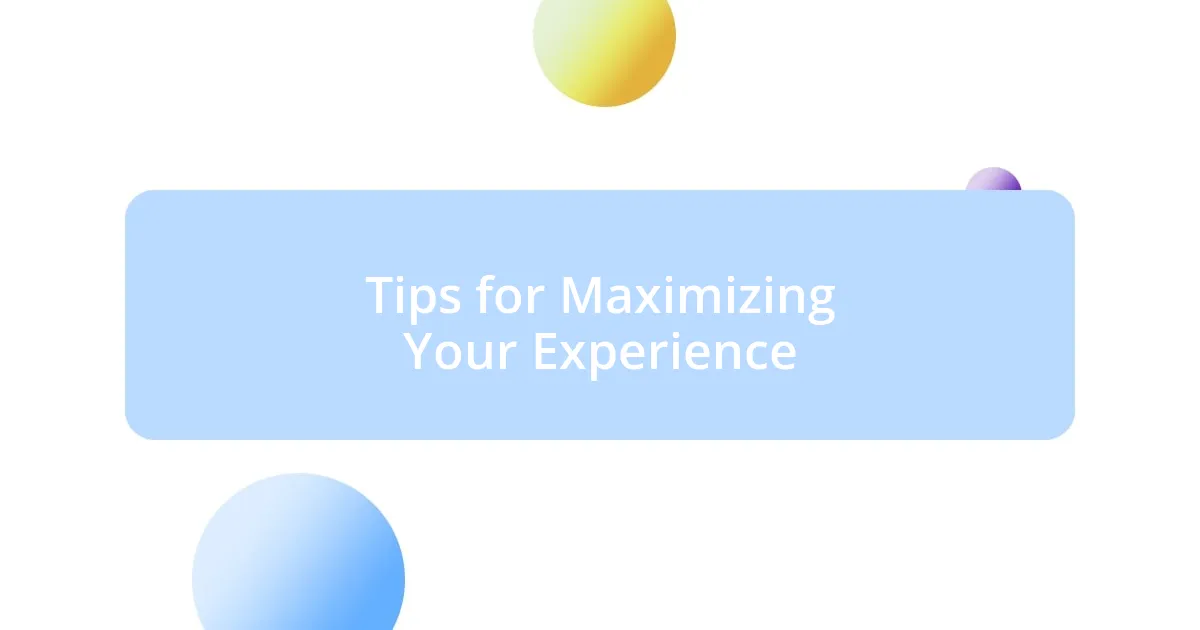
Tips for Maximizing Your Experience
When it comes to maximizing your experience in community workshops, being open and engaged is key. I remember a time in a pottery workshop when I hesitated to share my work, fearing judgment. But once I took the leap and sought feedback, I realized how supportive everyone was. This simple act of vulnerability opened doors to deeper connections and meaningful conversations about our art.
Another helpful tip is to ask questions—lots of them! In one workshop, I attended a session on sustainable living. Instead of just absorbing the information, I jumped in with queries about composting techniques. Not only did this enhance my understanding, but it also positioned me as someone genuinely interested. Engaging with others through your questions can lead to insightful discussions and a richer learning experience.
Lastly, don’t forget to reflect on your learning after each workshop. After a recent spoken word event, I took a moment to jot down my thoughts and feelings. This practice helped me process what I learned and identify areas for future growth. Have you ever thought about how reflecting on your experience can amplify your journey? It’s this moment of introspection that often sparks new ideas and goals.

